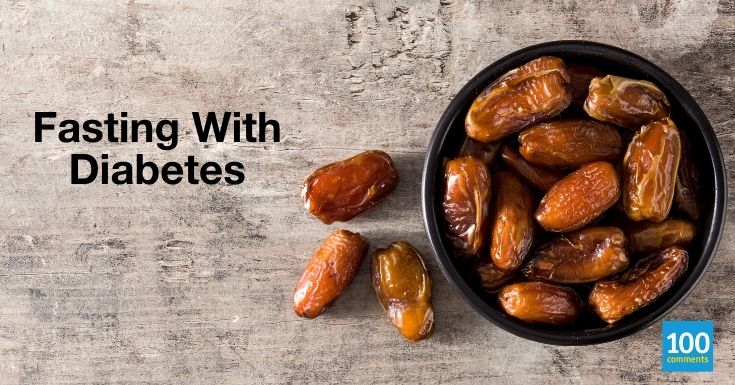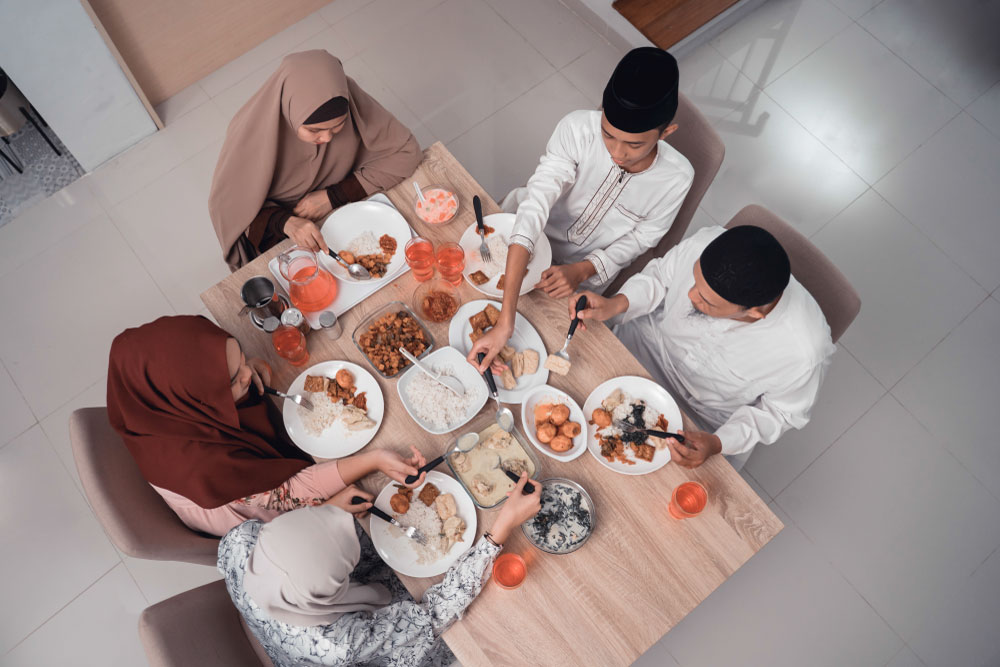As Ramadan approaches, Muslims look forward to preparing their body and mind for month-long daily fasting from sunrise to sunset. While most people breeze through the preparation, it is a different picture for those living with diabetes. The anticipation for the holy month is often accompanied by concerns and question marks on the potential risks that come with changing metabolic state.
“While Islam makes exceptions for people who are ill or have medical conditions, many will likely choose to fast. Therefore, it is extremely important for people with diabetes to understand the potential risks and how they can manage the condition way ahead before beginning fasting month begins, especially if there is a risk of aggravating complications associated with diabetes,” comments Dr Nina Mazera, Medical Director at Abbott Nutrition.
In fasting, Muslims are prohibited from consuming any food and fluids throughout the day – up to 13 hours in Malaysia. Due to the practice, people with diabetes are at particular risk of complications from these extreme changes including dehydration or hypoglycemia during fasting hours, and hyperglycemia after a breaking fast.
To help individuals who are living with diabetes prepare for safe fasting this Ramadan, here are some guidelines that they can start looking into:
1. Work closely with your doctor to run a fasting trial before Ramadan
It is advisable to visit your doctor and dietitian 6 to 8 weeks before Ramadan for medical advice[i]. This pre-Ramadan assessment is crucial to understand the associated risks, recognise any complications that might arise during and after Ramadan fasting, and how to address them. A doctor will review your medical history, perform a risk assessment, advise on medication dosage and insulin routine, and ultimately, evaluate whether fasting is safe for you.
Additionally, a “trial run” of fasting before Ramadan (i.e., Puasa Sunat) can get your body accustomed to the practice and identify possible issues that may arise during fasting.
2. Time your meal and consume healthy sahur and iftar in moderation
Among the commonly known practice by Muslims is having sahur (pre-fast) meal as late and iftar (breaking fast) as soon as possible to avoid unnecessary mealtime delays[ii]. Plan for low-glycemic index and high fiber foods that release energy slowly such as fruits and vegetables including barley, lentils and chickpeas, and have well-balanced meals[iii]. Diabetes-specific formulas such as Abbott’s Glucerna are also recommended to accompany a fasting meal plan, as it helps to regulate blood glucose levels and enable better glycemic control.
To safely raise your blood glucose levels after fasting, it is best to consume 2-3 pieces of date or a small plate of fruits and drink plenty of water to combat dehydration. Supplement your meal with Glucerna as part of a sahur or iftar meal to replace 1-2 snacks1.
3. Monitor glucose levels regularly and listen to your body
Frequent blood glucose monitoring during fasting and non-fasting hours is a must to adjust medication or treatment according to your needs. Blood sugar levels should be tested before sahur and two hours after iftar1. This is useful to help recognise when the levels are low or high, and in some cases, if the situation requires breaking the fast.
For people with diabetes, it is especially important to be aware of your body—whether you are hypoglycemic or hyperglycemic—and know that you can be exempted from fasting if your health is at risk.
4. Stay active by carrying out light-to-moderate intensity physical activity
Exercise has many benefits for people with diabetes as it can lower blood sugar levels for up to 12 hours, enabling the body to use insulin more efficiently[iv]. Therefore, it is encouraged to perform light or moderate workouts for at least 30 minutes between iftar and sahur times[v] which may be as simple as a trip to the Ramadan bazaar or performing nightly Tarawih prayers. However, avoid excessive physical activity as it may lead to a higher risk of hypoglycemia or dehydration, particularly before iftar2.
Dr. Nina shares, “Fasting may be challenging for people with diabetes and therefore patient education is greatly emphasized as part of a successful Ramadan diabetes management. Individuals who insist on fasting often do well under supervision, with good compliance and support. But if you are advised against it, heed your doctor’s advice.”
As we prepare for the holy month, this is your call to seek your doctor’s advice. Understand how best to practice glucose monitoring, nutrition, exercise and medication before, during and after fasting, and enjoy a safe, worry-free Ramadan experience.
[i] International Diabetes Federation and the DAR International Alliance. Diabetes and Ramadan: Practical Guidelines, Brussels, Belgium: International Diabetes Federation. 2021. www.idf.org/guidelines/diabetes-in-ramadan
[ii] Al-Arouj, et al. Recommendations for the management of diabetes during Ramadan. 2010. https://doi.org/10.2337/dc10-0896
[iii] Royal Australian College of General Practitioners. Diabetes management during Ramadan. 2010. https://www.racgp.org.au/getattachment/cbebef7d-9738-4dc8-af85-b822ecbd164b/Diabetes-management-during-Ramadan.pdf.aspx
[iv] Health Essentials. Glucose control: why timing your exercise after meals matters. 2018. https://health.clevelandclinic.org/exercise-and-your-glucose-levels-does-timing-make-a-difference/
[v] Cleveland Clinic Abu Dhabi. Fasting with diabetes: Observe a healthy and safe Ramadan. 2019. https://www.clevelandclinicabudhabi.ae/en/health-byte/pages/fasting-with-diabetes.aspx

















